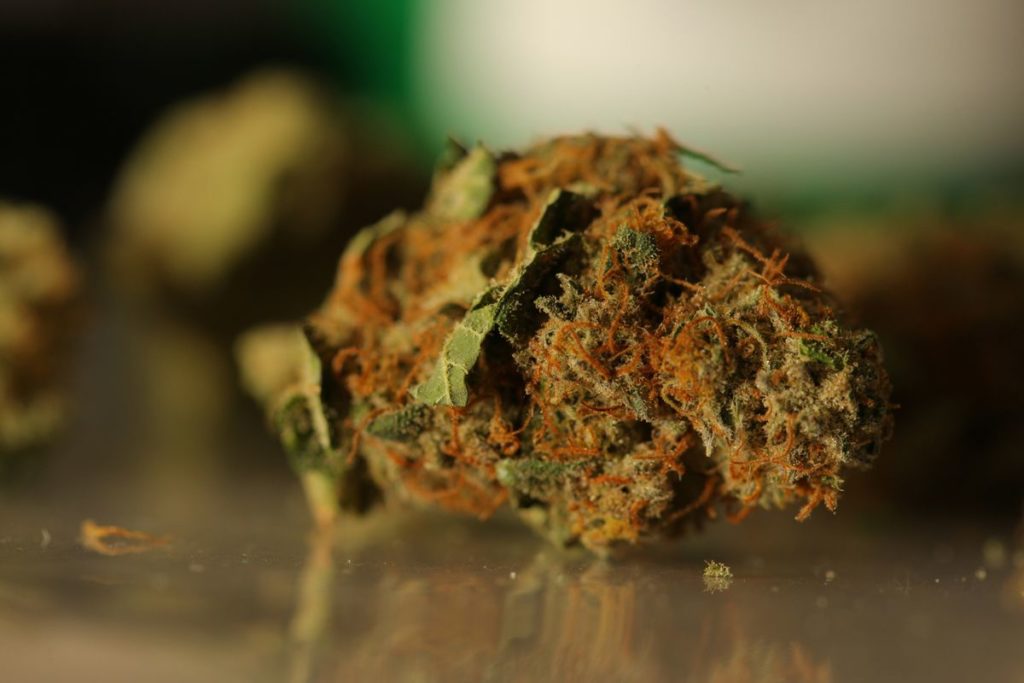Bloomberg
The plan will help licensed retailers start pot sales soon, with safety measures including prepaid transactions and GPS.
New York’s first legal sales of marijuana will be delivered by bikes and scooters, in a creative pivot to get the state’s recreational-pot program up and running even without retail stores.
“We’re turbocharging delivery because we have a big crop coming,” said Axel Bernabe, chief of staff of New York’s Office of Cannabis Management, which oversees regulation of the new recreational cannabis market in the state. Bernabe, revealing the delivery plans in a phone interview, said that the dozens of people who have already received licenses to open retail shops will also be able to deliver by bicycle, scooter and other vehicles.
The deliveries will be throughout the state, but bike and scooter delivery will be most visible in New York City. Manhattan in particular has a thriving culture of bicycle use by couriers and commuters, and there has been pressure over the years to create more road space for cyclists. The plan is an alternative to setting up stores in a city with some of the most expensive retail real estate in the world, and also overcomes difficulties related to landlords and lending that arise from the fact that marijuana is still federally illegal.
“We’ll be creative and different than other states,” Bernabe said. All forms of delivery would have security measures, such as lockboxes in couriers’ backpacks, prepaid purchases only and the use of GPS tracking systems. Deliveries will be to those aged 21 and over, with IDs checked at sale and upon delivery.
The individuals with retail licenses will be able to hire up to 25 delivery staffers per business, and deliver the marijuana from a warehouse rather than a retail location, according to a spokesperson for the Office of Cannabis Management. They will have as much as one year to do so before opening stores. No product can be sold directly from warehouses.
Adaptation
The delivery plan is an adaptation by the state’s regulator after the funding to secure retail locations and build shops fell through. The Dormitory Authority of the State of New York, the state’s finance and construction agency, had proposed a 10-year, $200 million investment fund — with $50 million committed by the state — to benefit the first people awarded licenses.
Following a rush to find the right qualifying individuals, New York selected dozens of people and eight nonprofits, based on criteria including past convictions for marijuana arrests. But the funding for them, to be organized by NBA Hall of Famer Chris Webber, never materialized, according to an investigation by NY Cannabis Insider, an industry publication.
Securing warehouse space will be funded by the retail license owners themselves, according to a spokesperson.
“From a price perspective, it’s significantly less expensive to get up and running as a delivery outfit as they’re building out their product offering and a dispensary brand,” Bernabe said. “It also makes sure we get all that product through the supply chain.”
Getting licensed marijuana sales up and running quickly is seen as critical for the state, which has been struggling against rising numbers of storefronts that sell sometimes contaminated products illegally. Licensed cultivators have also produced a harvest that will deteriorate if not sold soon.
The current model of allowing those with retail licenses to do the delivery themselves keeps players such as Uber, Grubhub and DoorDash out of the marijuana market, in keeping with New York’s approach to encouraging entrepreneurs and small businesses in the cannabis industry. The state has said that at some point in the future, it plans to issue licenses that will be exclusively for delivery, rather than retail.
H/T: www.bloomberg.com



